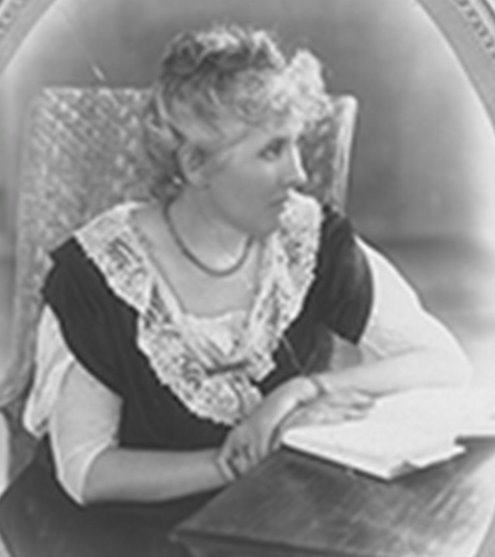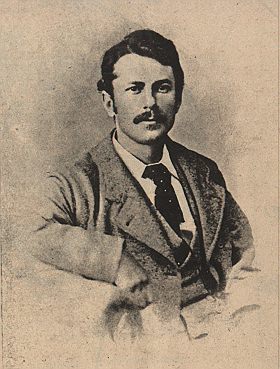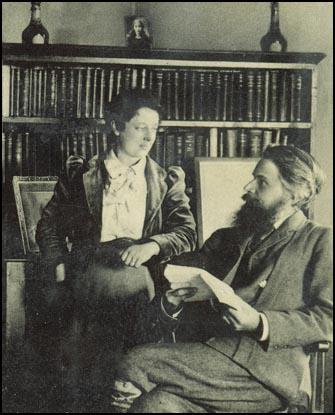|
Charlotte Wilson
Charlotte Mary Wilson (6 May 1854, Kemerton, Worcestershire – 28 April 1944, Irvington-on-Hudson, New York) was an English Fabian and anarchist who co-founded '' Freedom'' newspaper in 1886 with Peter Kropotkin, and edited, published, and largely financed it during its first decade. She remained editor of ''Freedom'' until 1895. Life and work Born Charlotte Mary Martin, she was the daughter of a well-to-do physician, Robert Spencer Martin. She was educated at Newnham College, Cambridge. She married Arthur Wilson, a stockbroker, and the couple moved to London. Charlotte Wilson joined the Fabian Society in 1884 and soon joined its Executive Committee. At the same time she founded an informal political study group for 'advanced' thinkers, known as the Hampstead Historic Club (also known as the Karl Marx Society or The Proudhon Society). This met in her former early 17th century farmhouse, called Wyldes, on the edge of Hampstead Heath. No records of the club survive but ... [...More Info...] [...Related Items...] OR: [Wikipedia] [Google] [Baidu] |
Kemerton
Kemerton is a village and civil parish in Worcestershire in England. It lies at the extreme south of the county in the local government district of Wychavon. Until boundary changes in 1931, it formed part of neighbouring Gloucestershire, and it remains in the Diocese of Gloucester. The northern half of the parish lies within the Cotswolds Area of Outstanding Natural Beauty. The parish is approximately 5.8 km (3.6 miles) long by 1.2 km (0.7 miles) wide, and encompasses approximately . It descends from the summit of Bredon Hill in the north, (elevation 300 m / 981 ft) to the Carrant Brook in the south (elevation 20 m / 65 ft). The north and south parish boundaries are recorded in a Saxon charter of the 8th century. Notable historic features include ''Kemerton Camp'', an Iron Age hill fort surmounting Bredon Hill, thought to have been vacated suddenly after a considerable battle. On the fort's south rampart is a two-storey stone tower known as ''Parsons F ... [...More Info...] [...Related Items...] OR: [Wikipedia] [Google] [Baidu] |
Sydney Olivier
Sydney Haldane Olivier, 1st Baron Olivier, (16 April 1859 – 15 February 1943) was a British civil servant. A Fabian and a member of the Labour Party, he served as Governor of Jamaica and as Secretary of State for India in the first government of Ramsay MacDonald. He was the uncle of the actor Laurence Olivier. Background Olivier was born in Colchester, the second of eight children of Anne Elizabeth Hardcastle Arnould and the Reverend Henry Arnold Olivier, a stern Anglican. His brothers included Henry (1850–1935), who had a military career ending as a colonel, Herbert, a successful portrait painter, and Gerard (1869–1939), a clergyman (the father of Laurence).Darlington, p. 13 During Olivier's youth, the family spent time at Lausanne and Kineton, and at Poulshott in Wiltshire, where Henry Olivier was rector. Sydney Olivier was sent to Tonbridge School, and then studied philosophy and theology at Corpus Christi College, Oxford. At Oxford he became a close friend of Grah ... [...More Info...] [...Related Items...] OR: [Wikipedia] [Google] [Baidu] |
Proudhon
Pierre-Joseph Proudhon (, , ; 15 January 1809, Besançon – 19 January 1865, Paris) was a French socialist,Landauer, Carl; Landauer, Hilde Stein; Valkenier, Elizabeth Kridl (1979) 959 "The Three Anticapitalistic Movements". ''European Socialism: A History of Ideas and Movements from the Industrial Revolution to Hitler's Seizure of Power''. University of California Press. pp. 59, 63. "In France, post-Utopian socialism begins with Peter Joseph Proudhon. .. roudhonwas the most profound thinker among pre-Marxian socialists."Eatwell, Roger; Wright, Anthony (1999). ''Contemporary Political Ideologies'' (2nd ed.). London: Continuum. p. 82. .Newman, Michael (2005). ''Socialism: A Very Short Introduction''. Oxford University Press. p. 15. .Docherty, James C.; Lamb, Peter, eds. (2006). ''Historical Dictionary of Socialism''. Historical Dictionaries of Religions, Philosophies, and Movements. 73 (2nd ed.). Lanham, Maryland: The Scarecrow Press. p. 284. . See also Lamb, Peter (2015). ''Hi ... [...More Info...] [...Related Items...] OR: [Wikipedia] [Google] [Baidu] |
Das Kapital
''Das Kapital'', also known as ''Capital: A Critique of Political Economy'' or sometimes simply ''Capital'' (german: Das Kapital. Kritik der politischen Ökonomie, link=no, ; 1867–1883), is a foundational theoretical text in Historical materialism, materialist philosophy, critique of political economy and politics by Karl Marx. Marx aimed to reveal the economic patterns underpinning the capitalist mode of production (Marxist theory), capitalist mode of production in contrast to Classical economics, classical political economists such as Adam Smith, Jean-Baptiste Say, David Ricardo and John Stuart Mill. While Marx did not live to publish the planned second, third and fourth parts, the second and third volumes were completed from his notes and published after his death by his colleague Friedrich Engels; the fourth volume was completed and published after Engels's death by Marxist philosoper Karl Kautsky. ''Das Kapital'' is the most cited book published before 1950 in the social ... [...More Info...] [...Related Items...] OR: [Wikipedia] [Google] [Baidu] |
Olive Schreiner
Olive Schreiner (24 March 1855 – 11 December 1920) was a South African author, pacifist, anti-war campaigner and intellectual. She is best remembered today for her novel ''The Story of an African Farm'' (1883), which has been highly acclaimed. It deals boldly with such contemporary issues as agnosticism, existential independence, individualism, the professional aspirations of women, and the elemental nature of life on the colonial frontier. Since the late 20th century, scholars have also credited Schreiner as an advocate for the Afrikaners, and other South African groups who were excluded from political power for decades, such as indigenous blacks, Jews, and Indians. Although she showed interest in socialism, pacifism, vegetarianism, and feminism amongst other topics, her views escaped restrictive categorisations. Her published works and other surviving writings promote implicit values such as moderation, friendship, and understanding amongst all peoples, and avoid the pitfall ... [...More Info...] [...Related Items...] OR: [Wikipedia] [Google] [Baidu] |
Ford Madox Brown
Ford Madox Brown (16 April 1821 – 6 October 1893) was a British painter of moral and historical subjects, notable for his distinctively graphic and often William Hogarth, Hogarthian version of the Pre-Raphaelite style. Arguably, his most notable painting was ''Work (painting), Work'' (1852–1865). Brown spent the latter years of his life painting the twelve works known as ''The Manchester Murals'', depicting History of Manchester, Mancunian history, for Manchester Town Hall. Early life Brown was the grandson of the medical theorist John Brown (physician, born 1735), John Brown, founder of the Brunonian system of medicine. His great-grandfather was a Scottish labourer. His father Ford Brown served as a purser in the Royal Navy, including a period serving under Sir Isaac Coffin, 1st Baronet, Sir Isaac Coffin and a period on HMS Arethusa (1781), HMS ''Arethusa''. He left the Navy after the end of the Napoleonic Wars. In 1818, Ford Brown married Caroline Madox, of an ol ... [...More Info...] [...Related Items...] OR: [Wikipedia] [Google] [Baidu] |
Frank Podmore
Frank Podmore (5 February 1856 – 14 August 1910) was an English author, and founding member of the Fabian Society. He is best known as an influential member of the Society for Psychical Research and for his sceptical writings on spiritualism. Life Born at Elstree, Borehamwood, Hertfordshire, Podmore was the son of Thompson Podmore, headmaster of Eastbourne College. He was educated at Haileybury and Pembroke College, Oxford (where he first became interested in Spiritualism and joined the Society for Psychical Research – this interest remained with him throughout his life). In October 1883 Podmore and Edward R. Pease joined a socialist debating group established by Edith Nesbit and Hubert Bland. Podmore suggested that the group should be named after the Roman General, Quintus Fabius Maximus Verrucosus, who advocated weakening the opposition by harassing operations rather than becoming involved in pitched battles. In January 1884 the group became known as the Fabian Society ... [...More Info...] [...Related Items...] OR: [Wikipedia] [Google] [Baidu] |
Edward Carpenter
Edward Carpenter (29 August 1844 – 28 June 1929) was an English utopian socialist, poet, philosopher, anthologist, an early activist for gay rightsWarren Allen Smith: ''Who's Who in Hell, A Handbook and International Directory for Humanists, Freethinkers, Naturalists, Rationalists, and Non-Theists'', Barricade Books, New York, 2000, p. 186; . and prison reform whilst advocating vegetarianism and taking a stance against vivisection. As a philosopher he was particularly known for his publication of ''Civilisation: Its Cause and Cure''. Here he described civilisation as a form of disease through which human societies pass. An early advocate of sexual liberation, he had an influence on both D. H. Lawrence and Sri Aurobindo, and inspired E. M. Forster's novel ''Maurice''.Symondson, Kate (25 May 2016E M Forster’s gay fiction The British Library website. Retrieved 18 July 2020 Early life Born at 45 Brunswick Square, Hove in Sussex, Carpenter was educated at nearby Bright ... [...More Info...] [...Related Items...] OR: [Wikipedia] [Google] [Baidu] |
Havelock Ellis
Henry Havelock Ellis (2 February 1859 – 8 July 1939) was an English physician, eugenicist, writer, progressive intellectual and social reformer who studied human sexuality. He co-wrote the first medical textbook in English on homosexuality in 1897, and also published works on a variety of sexual practices and inclinations, as well as on transgender psychology. He is credited with introducing the notions of narcissism and autoeroticism, later adopted by psychoanalysis. Ellis was among the pioneering investigators of psychedelic drugs and the author of one of the first written reports to the public about an experience with mescaline, which he conducted on himself in 1896. He supported eugenics and served as one of 16 vice-presidents of the Eugenics Society from 1909 to 1912. Early life and career Ellis, son of Edward Peppen Ellis and Susannah Mary Wheatley, was born in Croydon, Surrey (now part of Greater London). He had four sisters, none of whom married. His father was a sea ... [...More Info...] [...Related Items...] OR: [Wikipedia] [Google] [Baidu] |
Karl Pearson
Karl Pearson (; born Carl Pearson; 27 March 1857 – 27 April 1936) was an English mathematician and biostatistician. He has been credited with establishing the discipline of mathematical statistics. He founded the world's first university statistics department at University College, London in 1911, and contributed significantly to the field of biometrics and meteorology. Pearson was also a proponent of social Darwinism, eugenics and scientific racism. Pearson was a protégé and biographer of Sir Francis Galton. He edited and completed both William Kingdon Clifford's ''Common Sense of the Exact Sciences'' (1885) and Isaac Todhunter's ''History of the Theory of Elasticity'', Vol. 1 (1886–1893) and Vol. 2 (1893), following their deaths. Biography Pearson was born in Islington, London into a Quaker family. His father was William Pearson QC of the Inner Temple, and his mother Fanny (née Smith), and he had two siblings, Arthur and Amy. Pearson attended University College Scho ... [...More Info...] [...Related Items...] OR: [Wikipedia] [Google] [Baidu] |
Hubert Bland
Hubert Bland (3 January 1855 – 14 April 1914) was an English author and the husband of Edith Nesbit. He was known for being an infamous libertine, a journalist, an early English socialist, and one of the founders of the Fabian Society. Early life and early careers Bland was born in Woolwich, south-east London, the youngest of the four children of Henry Bland, a successful commercial clerk, and his wife Mary Ann. He received his formal education in local schools. He was baptised on 14 March 1855 at St Mary Magdalene, Woolwich. As a young man, Bland, showed his "passion was for politics" by his "strong interest in the political ideas raised at social protest meetings." Bland wanted to attend the Royal Military Academy, Woolwich and become an army officer, but there was not enough money after his father's death, so he went to work as a bank clerk. Later, he went into a brush-making business that failed. After that, he worked as secretary to the General Hydraulic Power Company ... [...More Info...] [...Related Items...] OR: [Wikipedia] [Google] [Baidu] |
Edward R
Edward is an English given name. It is derived from the Anglo-Saxon name ''Ēadweard'', composed of the elements '' ēad'' "wealth, fortune; prosperous" and '' weard'' "guardian, protector”. History The name Edward was very popular in Anglo-Saxon England, but the rule of the Norman and Plantagenet dynasties had effectively ended its use amongst the upper classes. The popularity of the name was revived when Henry III named his firstborn son, the future Edward I, as part of his efforts to promote a cult around Edward the Confessor, for whom Henry had a deep admiration. Variant forms The name has been adopted in the Iberian peninsula since the 15th century, due to Edward, King of Portugal, whose mother was English. The Spanish/Portuguese forms of the name are Eduardo and Duarte. Other variant forms include French Édouard, Italian Edoardo and Odoardo, German, Dutch, Czech and Romanian Eduard and Scandinavian Edvard. Short forms include Ed, Eddy, Eddie, Ted, Teddy and Ned. ... [...More Info...] [...Related Items...] OR: [Wikipedia] [Google] [Baidu] |







